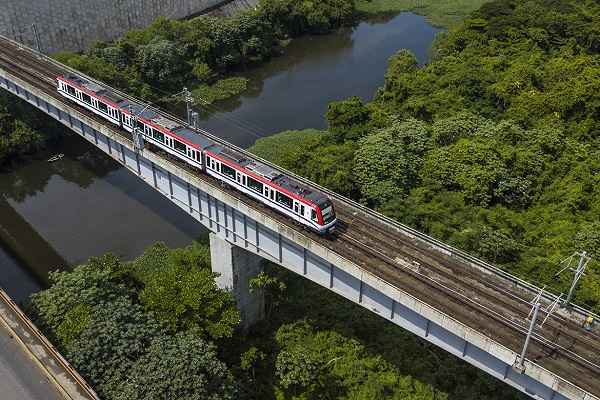 CMRL achieves second Tunnel Breakthrough at Thirumayilai for Chennai Metro Phase 2 Corridor 4
CMRL achieves second Tunnel Breakthrough at Thirumayilai for Chennai Metro Phase 2 Corridor 4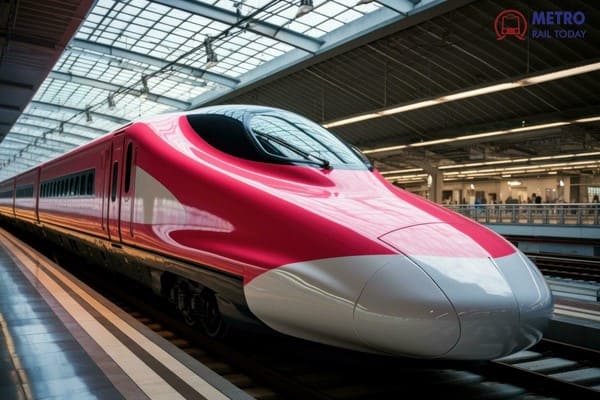 NHSRCL invites Single Tender from BEML for Bullet Train Rolling Stock Package
NHSRCL invites Single Tender from BEML for Bullet Train Rolling Stock Package Railway Minister reviews progress of Ahmedabad–Dholera Semi High-Speed Rail Project
Railway Minister reviews progress of Ahmedabad–Dholera Semi High-Speed Rail Project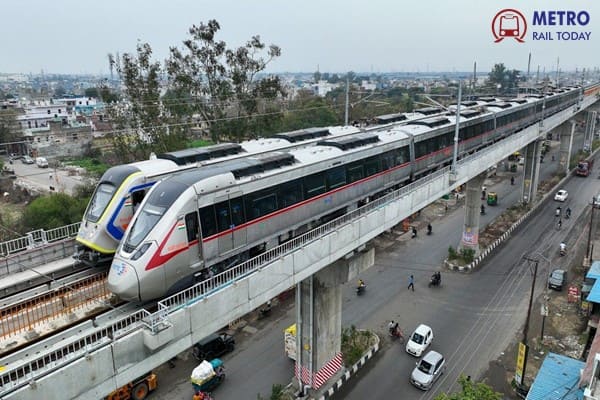 National Planning Group reviews key Rail & Metro projects under PM GatiShakti
National Planning Group reviews key Rail & Metro projects under PM GatiShakti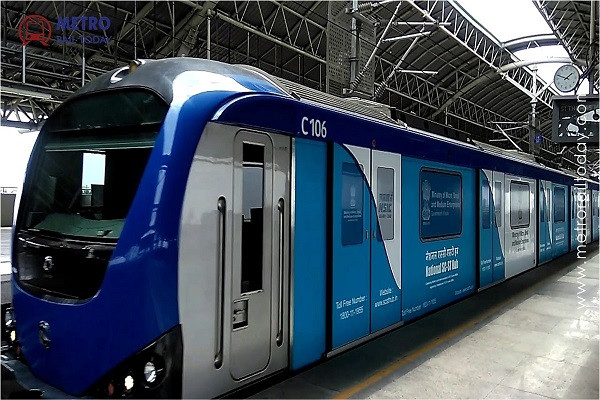 CMRS approves Driverless Metro Operations on first stretch of Chennai Metro Phase 2 Corridor 4
CMRS approves Driverless Metro Operations on first stretch of Chennai Metro Phase 2 Corridor 4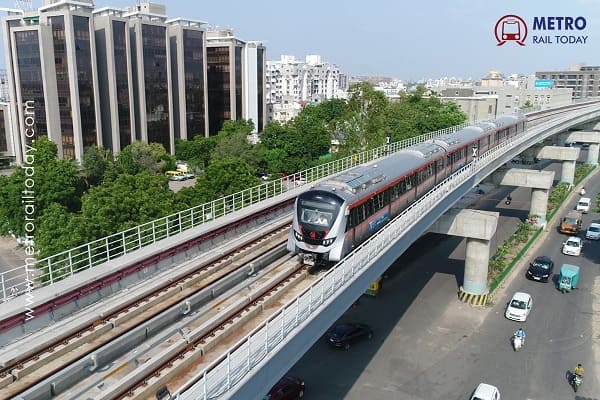 J Kumar Infraprojects completes Final Tunnel Breakthrough for Surat Metro Phase 1 Project
J Kumar Infraprojects completes Final Tunnel Breakthrough for Surat Metro Phase 1 Project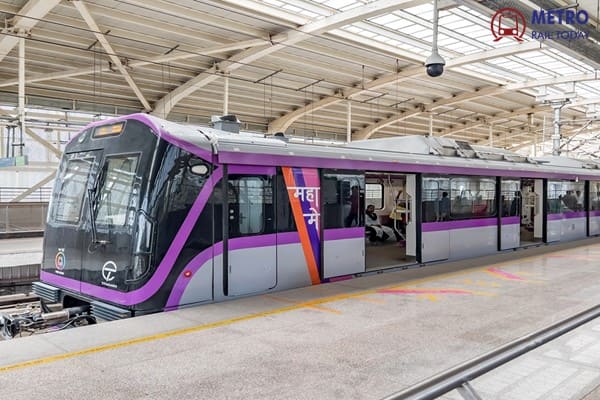 Apurvakriti Infrastructure awarded Ballastless Track Contract for Pune Metro Reach-1 Extension
Apurvakriti Infrastructure awarded Ballastless Track Contract for Pune Metro Reach-1 Extension SAM India Builtwell bags first ₹222.76 Crore Civil Contract for Delhi Metro Phase V
SAM India Builtwell bags first ₹222.76 Crore Civil Contract for Delhi Metro Phase V HRIDC conducts Investors Pre-Bid Meeting for Haryana Orbital Rail Corridor
HRIDC conducts Investors Pre-Bid Meeting for Haryana Orbital Rail Corridor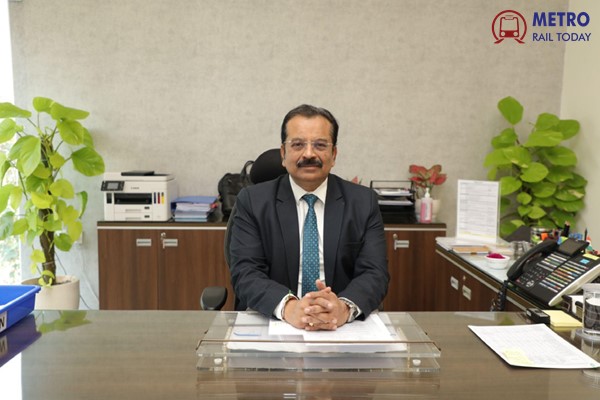 NCRTC Chief Shalabh Goel appointed as General Manager of Central Railway
NCRTC Chief Shalabh Goel appointed as General Manager of Central Railway
UN blacklists Spanish Trainmaker CAF over activities in Occupied Palestinian Territories
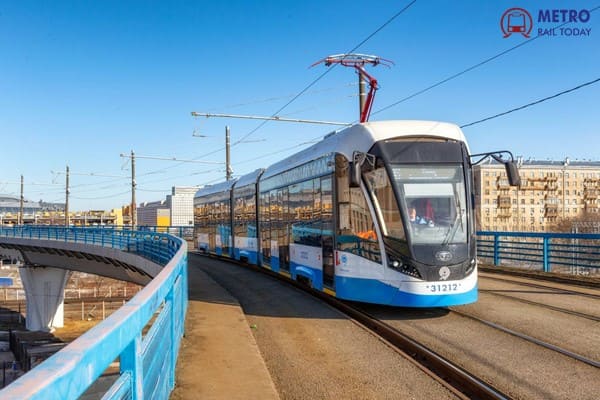
New York, United States (Metro Rail Today): In a major development, the Office of the United Nations High Commissioner for Human Rights (OHCHR) has added Spanish rolling stock manufacturer CAF (Construcciones y Auxiliar de Ferrocarriles) to its blacklist of companies allegedly conducting business in the Palestinian territories occupied by Israel.
The UN accuses CAF of being involved in activities that exploit natural resources for commercial purposes and of supplying equipment and materials contributing to the construction and expansion of Israeli settlements and separation barriers that cut across Palestinian communities. The company has also been accused of providing transport services that sustain settlements considered illegal under international law.
Background: CAF’s Role in Jerusalem’s Tram Network
The controversy stems from CAF’s participation in the Jerusalem light rail project, which has long been the subject of international scrutiny. In 2019, the TransJerusalem J-Net consortium, jointly owned by CAF and Israeli construction firm Shapir, won a long-term concession to extend the existing tram line and build a new route serving parts of East Jerusalem, a territory claimed by Palestinians for a future capital.
Under the contract, the consortium is responsible for network operation, maintenance, the supply of 114 Urbos 100 trams, and the refurbishment of 46 Alstom Citadis vehicles. The project is scheduled for completion by 2027.
CAF Rejects UN’s Decision
CAF has strongly rejected the UN’s listing, calling it unjustified and based on an inaccurate interpretation of international law.
The company stated that its participation in the Jerusalem tram project followed consultations with independent international legal experts, including specialists affiliated with the UN itself, who reportedly confirmed that no violations were committed.
CAF also referenced a ruling by the Versailles Court of Appeal, which concluded that the company’s role in the project did not breach international law.
“The tramway represents socially important infrastructure that upholds the fundamental human right to freedom of movement,” CAF said in its official statement.
Potential Impact on Global Contracts
CAF’s inclusion on the UN blacklist could have far-reaching commercial implications, potentially restricting its ability to secure new contracts or retain existing ones.
The company now risks losing a major contract to supply 39 metro trains for Barcelona, as the tender explicitly prohibits companies listed by the UN from participation.
French manufacturer Alstom has already filed an appeal seeking CAF’s exclusion from the bidding process.
Similarly, in Belgium, a coalition of non-governmental organisations (NGOs) has called for CAF to be barred from a national tender involving the procurement of up to 600 passenger trains.
Commenting on the development, Mrs. Mamta Shah, Managing Director and CEO of Urban Infra Group, said:
“The global railway industry must operate on the dual pillars of innovation and integrity. Infrastructure development cannot come at the cost of ethical responsibility. As transport networks expand across borders, companies need to ensure their projects respect international law and contribute to inclusive, sustainable growth. This incident is a reminder that responsible mobility and ethical governance must go hand in hand.”
Ethical Accountability in Global Transport
The CAF blacklisting has reignited a broader conversation about corporate accountability in infrastructure development, particularly in politically sensitive regions.
As transport projects increasingly intersect with human rights, environmental concerns, and international law, global rail manufacturers face growing pressure to adhere to transparent, ethical standards that align with the principles of sustainable and responsible development.





